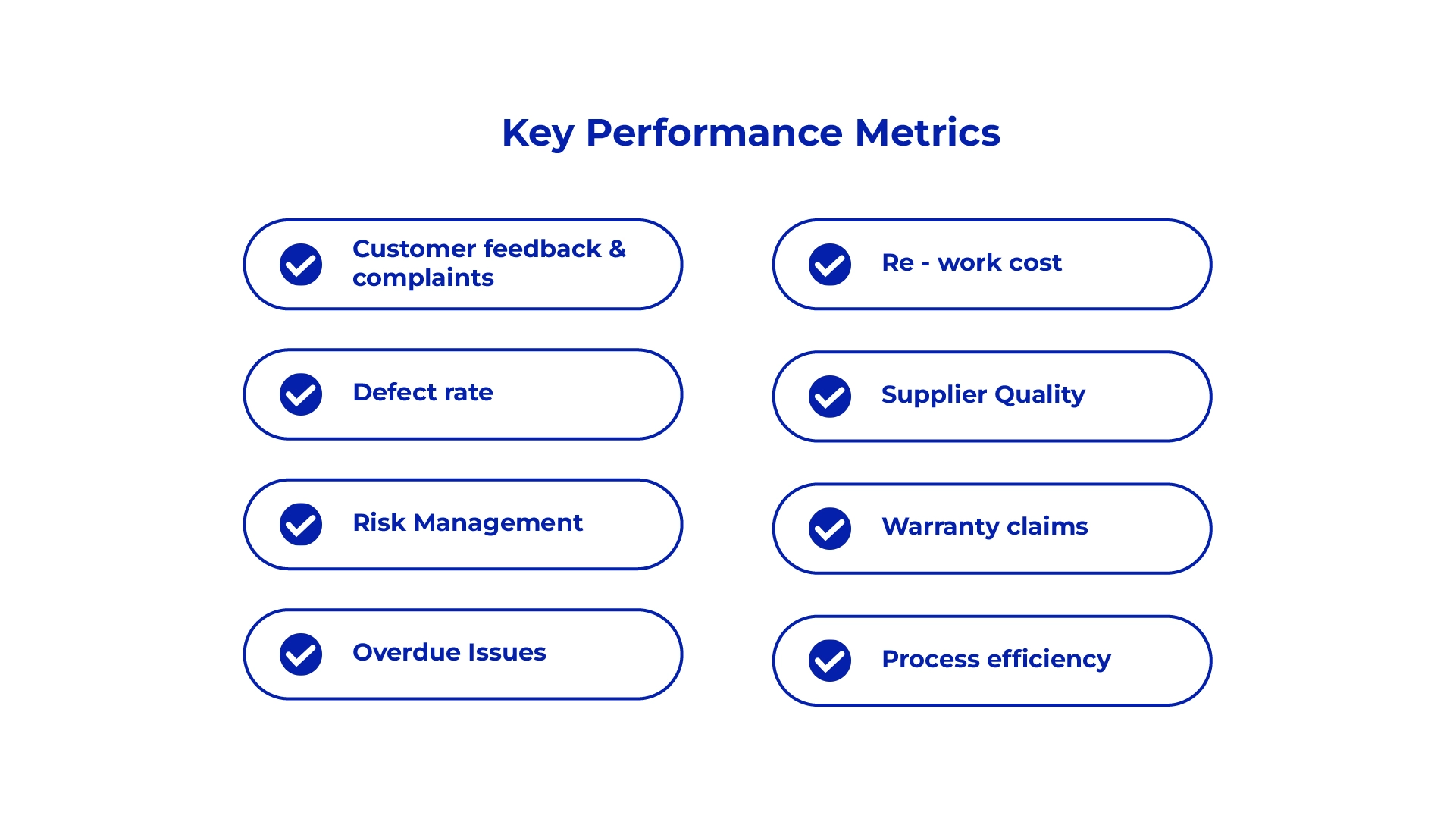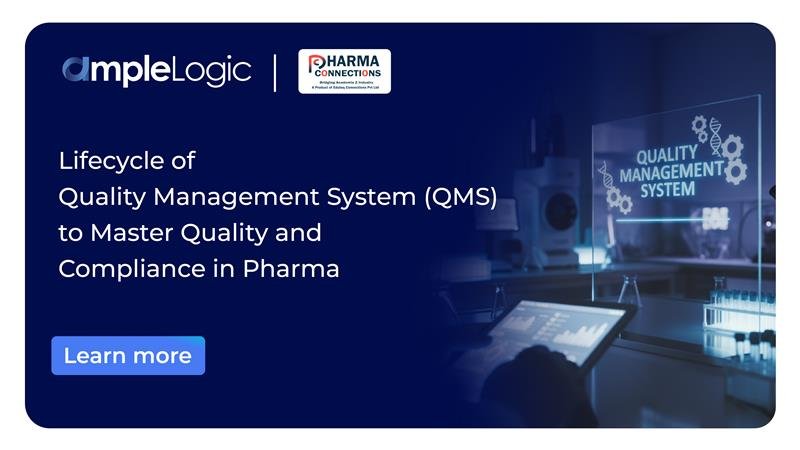
Key Performance Indicators (KPIs) are critical metrics that are used to measure the performance of a Quality Management System (QMS). They provide insight into how well the QMS is meeting its objectives and goals. By monitoring KPIs, organizations can identify areas for improvement, make informed decisions, and continuously improve the quality of their products or services. Some common KPIs used in QMS include customer satisfaction index, defect rate, on-time delivery, and process efficiency.
These KPIs also serve as key quality performance indicators, enabling pharmaceutical companies to track progress and optimize compliance strategies.
11 Important Quality Control KPI’s for QMS
Pharmaceutical organizations rely on quantifiable metrics within their QMS to maintain regulatory compliance and uphold product quality. These QMS KPIs act as diagnostic tools, highlighting process gaps, monitoring ongoing performance, and guiding strategic improvements.
They are essentially quality performance indicators that help translate operational data into actionable insights, critical for regulatory readiness and process excellence. By keeping a close eye on these indicators, companies can ensure their systems remain robust, audit-ready, and aligned with industry standards.
Using each KPI for quality assurance, teams can proactively align processes with cGMP standards and patient safety benchmarks.
1. Customer feedback & complaints
Customer complaints and feedback are valuable sources of information for identifying product quality issues and customer satisfaction levels. Analyzing trends in customer complaints, response times, and resolution rates enables proactive quality improvements and enhances customer satisfaction.
2. Defect Rate
Defect rate is a metric used to measure the quality of products in the pharmaceutical industry. It refers to the percentage of defective products that do not meet the established quality standards. Defective products may pose a risk to patient safety or be ineffective in treating the intended disease.
3. Risk Management
Risk management is a critical process in the pharmaceutical industry that involves identifying, assessing, and mitigating risks associated with the development, manufacturing, and distribution of pharmaceutical products. The goal of risk management in pharmaceutical companies is to minimize the potential harm to patients and users of the products.
4. Overdue issues
The overdue issues KPI measures the efficiency and effectiveness of operations. It refers to the number of tasks or activities that are not completed within the designated time frame or deadline. As a kpi for quality assurance, this metric helps teams understand process lags that may compromise quality outcomes.

5. Rework Costs
Rework costs can be a significant drain on resources in pharmaceutical companies. Rework refers to any activity performed after a product has been completed to fix defects or improve quality. These activities can include reprocessing, repackaging, re-labelling, and more.
6. Supplier Quality
Supplier Quality Key KPI is a metric used to measure the quality and reliability of suppliers. Suppliers play a critical role in the pharmaceutical industry, providing raw materials, components, and services essential to the manufacturing and distribution of pharmaceutical products. Tracking such quality performance indicators ensures that vendors consistently meet required specifications and reduce variability in the supply chain.
7. Process Efficiency
One key metric is cycle time, which tracks how long it takes to complete a process. By streamlining processes to reduce cycle time, you can identify and eliminate bottlenecks, improve error rates, and get more done in less time.
8. Corrective and Preventive Action (CAPA) Effectiveness
This QMS KPI measures how effectively an organization identifies the root causes of non-conformities and implements corrective or preventive actions. Monitoring CAPA closure rates and the issue recurrence helps ensure sustainable quality improvements.
9. Training Compliance Rate
Training compliance is a crucial KPI that measures whether employees are adequately trained on SOPs, GMP guidelines, and quality procedures. High compliance ensures staff are equipped to maintain quality and regulatory standards.
10. Batch Release Time
Batch release time measures the average duration between production completion and final QA release. Minimizing this time without compromising on quality checks can accelerate time-to-market and improve operational flow.
11. Audit Findings Closure Rate
This QMS KPI tracks the number of audit findings that are resolved within a defined timeframe. It reflects the organization’s responsiveness to internal and external audits, ensuring continuous compliance. As a kpi for quality assurance, audit finding resolution serves as a mirror for regulatory preparedness and accountability.
Tracking these eleven key performance indicators for Quality Management Systems provides valuable insights into the effectiveness, compliance, and continuous improvement of quality processes within pharmaceutical organizations. When used effectively, these quality performance indicators can help organizations implement better risk controls and encourage a culture of continuous improvement.
By focusing on these Quality KPI’s in manufacturing, organizations can proactively identify areas for improvement, mitigate risks, and enhance overall product quality and patient safety.
Schedule a demo with our team to discover how Amplelogic can assist you. For more details, visit Amplelogic Resources.






























